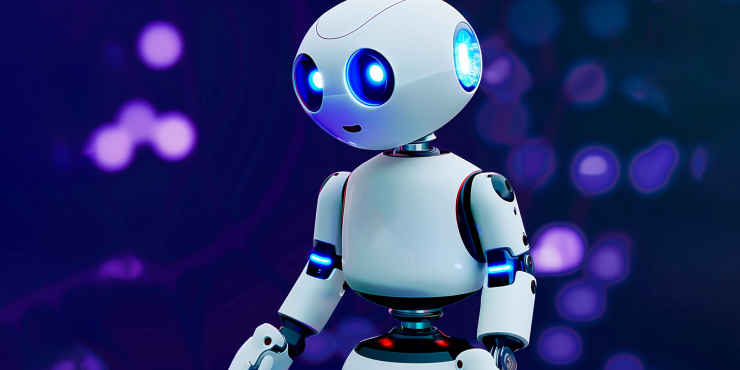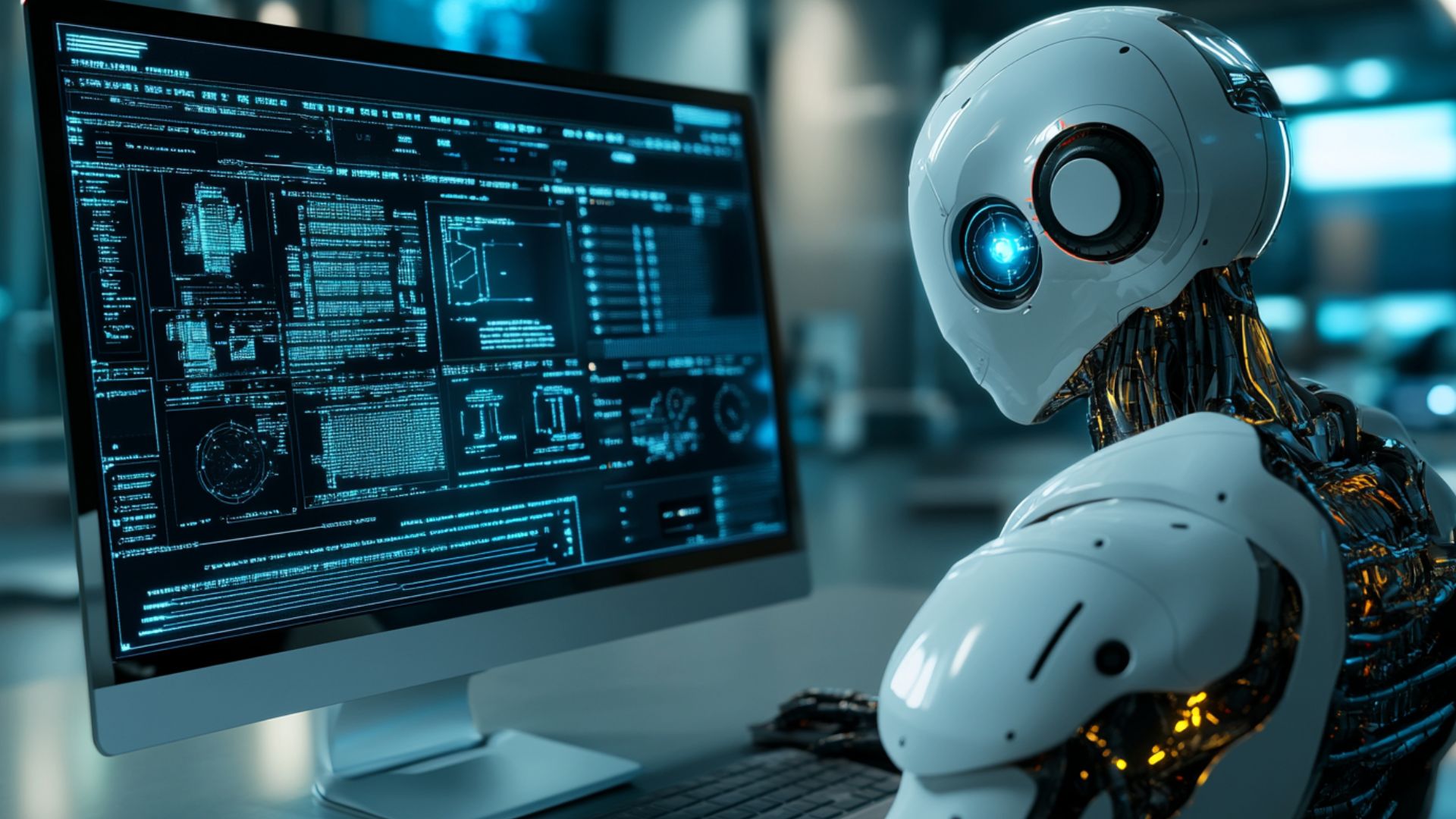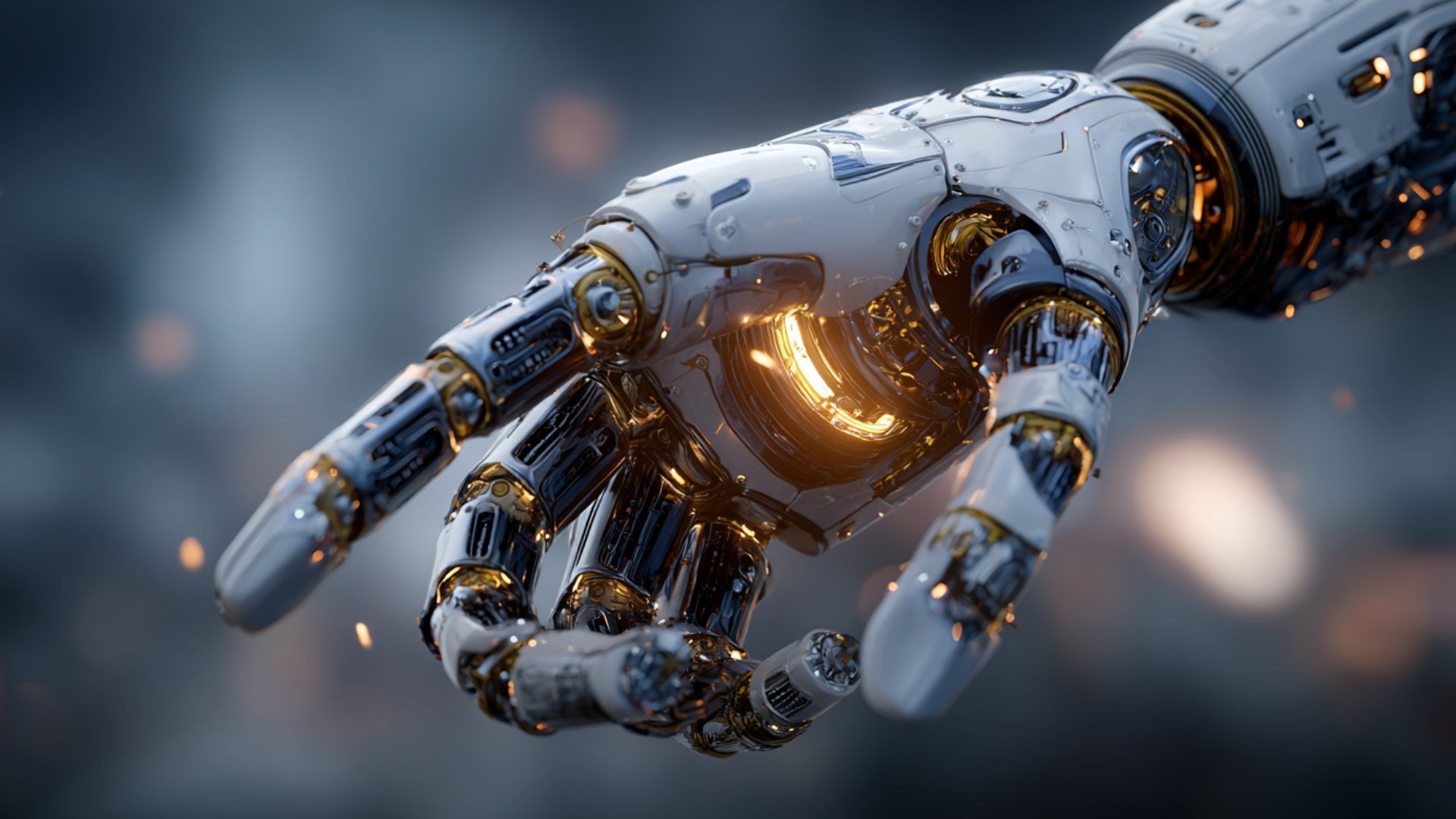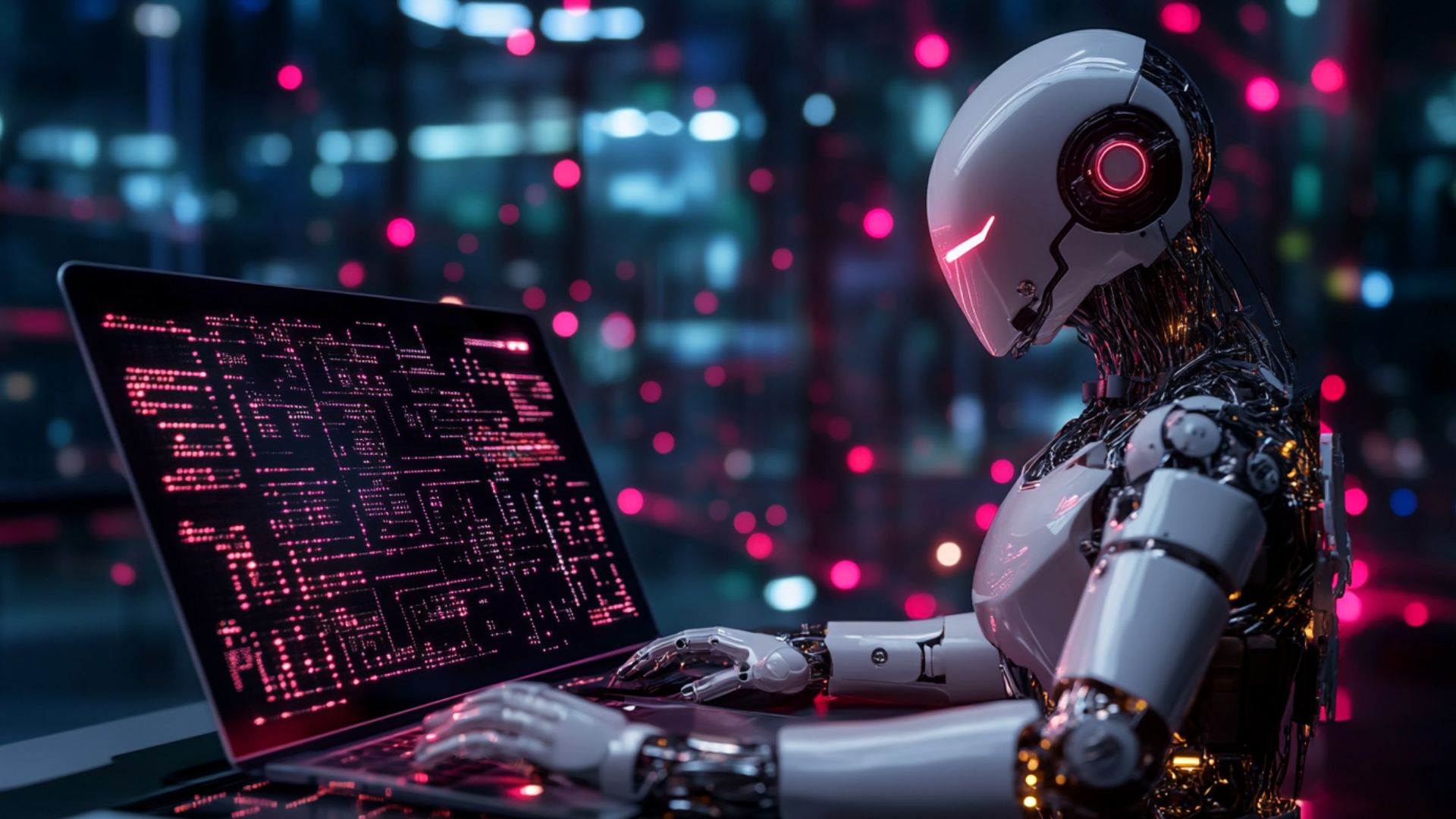How Personal Chatbot Assistants Are Changing the Game

Remember the frustration of navigating complex phone menus or spending hours on hold for customer service? The digital landscape is undergoing a transformation. It ushers in a new era of personal chatbots. These virtual companions are more than just a passing fad. They're rapidly evolving and leaving an undeniable mark on modern lifestyles.
Imagine a world where scheduling appointments, managing lists, and retrieving information happen effortlessly. It’s all through a simple conversation. Personal chatbot assistants are poised to make this a reality.
By leveraging the power of AI-based technologies, personal assistants can anticipate our needs. They personalize our experiences and become an extension of ourselves.
This article delves into the exciting realm of chatbot assistants. It uncovers how they're revolutionizing the way we approach productivity and accessibility.
Introduction to AI Personal Assistants
The days of clunky virtual assistants and frustrating automated menus are fading. We're witnessing a surge in AI-powered personal assistants seamlessly integrating into our lives. These intelligent chatbots aren't mere rehashes of the past. They boast advanced capabilities fueled by cutting-edge technologies. Unlike their predecessors, AI assistants can engage in natural conversations. They can anticipate needs and personalize experiences to an unprecedented degree.
Forget fiddling with buttons - imagine saying "remind me to call Mom," and it's done. Personal assistants are like super-charged chatbots on steroids. They’re ditching the text for natural conversation. These virtual wizards leverage the power of artificial intelligence. They’re constantly learning your habits and preferences. Need a flight across the country? No problem, just speak your command. Craving a movie night but can't find the remote? AI assistants can control your smart home lights and temperature, and even fire up your favorite streaming service - all with just your voice.
AI technology continues to develop. So, these assistants are poised to become an even more essential part of our daily routines. They're to streamline tasks and make life a whole lot more convenient.
Core Technologies Behind AI Assistants
The magic behind AI personal assistants isn't a single trick. It’s a complex spell cast by powerful technologies. Let's peek behind the curtain: at its core is natural language processing. It allows the assistant to understand your requests in plain English. Then, ML kicks in. It lets the assistant learn your preferences and respond more effectively. Deep learning adds another layer. It enables the assistant to analyze vast amounts of data. It’s to provide the most helpful answers and complete tasks like booking flights. It's this powerful combination that makes AI assistants such versatile tools for our everyday lives. Here's a closer look at the key players:
- Natural Language Processing (NLP). NLP allows the AI personal assistant to understand the intent and meaning behind your words. It analyzes syntax, semantics, and context to interpret your requests accurately. This enables the assistant to distinguish between a simple question like "What's the weather like?" and a more complex one like "Should I take an umbrella to work today?"
- Machine Learning (ML). ML empowers the assistant to continuously learn and improve. By analyzing past interactions and user data, the assistant personalized responses and recommendations. The more you interact, the better it understands your needs and preferences. Imagine an assistant that remembers your coffee order or automatically adds travels to the calendar. That's the power of ML at play.
- Speech Recognition and Synthesis. These chatbot personal assistant technologies enable natural voice-based interactions. The assistant can understand spoken commands and respond in a clear, human-like voice. It creates a more intuitive and hands-free user experience.
These core technologies work in tandem to create a sophisticated AI brain. NLP acts as the ears and eyes, deciphering your requests. ML serves as the learning engine, constantly refining the assistant's understanding. Finally, speech recognition and synthesis translate your words into commands. Then, the assistant's responses into understandable speech.
User Interface and Interaction Design
For AI-powered personal assistants to be successful, a seamless and user-friendly interface is crucial. Here's why UI/UX design plays a vital role:
- Intuitive Interaction. The interface should be simple and intuitive. It allows users to interact with the assistant naturally. Think voice commands, chat windows, or touch-based interfaces. The design must cater to user preference and create a familiar and comfortable interaction style.
- Context Awareness. A good UI/UX design incorporates context awareness. Imagine booking a cab. The personal assistant bot should understand your location without needing an explicit mention. This enhances the user experience by minimizing unnecessary steps. It makes interactions more efficient.
- Personalized Experience. Personalization is key. The interface should adapt to individual user preferences. Imagine a bot surfacing news articles relevant to your interests or scheduling reminders based on your calendar. This level of customization fosters a sense of connection. It elevates the user experience.
By focusing on user-centered design, personal chatbot assistants become more than just tools. They morph into helpful companions integrated into our daily routines. The intuitive interface makes them accessible to a wider range of users. It promotes inclusivity and wider adoption of this exciting technology.
Personal Assistants in Everyday Life

Personal chatbot assistants are no longer relegated to futuristic sci-fi movies. They're seamlessly woven into the fabric of our daily lives. They streamline tasks, manage schedules, and become indispensable digital companions. Let's delve into the diverse applications of these AI-powered tools:
- The Ultimate Reminder System. Gone are the days of forgetting birthdays or appointments. With a simple voice command or text message, you can set reminders for anything. They range from picking up groceries to taking medication. The chatbot, as a personal assistant, seamlessly integrates with your calendar, ensuring you never miss a beat. Imagine waking up to a gentle reminder about a doctor's appointment or a notification to leave early for a meeting due to traffic. That's the power of AI-powered reminders in action.
- Effortless Scheduling. Scheduling meetings, flights, or even haircuts can be time-consuming and tedious. AI assistants come to the rescue by handling this burden. You can use voice commands to schedule appointments directly on your calendar. You can check for availability and even receive confirmation messages. Picture this: you're driving home, and remember you need to schedule a haircut for next week. Simply ask your assistant to find appointments for barbers near your home within your preferred time frame. The bot retrieves options, books slots, and confirms through a quick conversation. It saves you valuable time and effort.
- The Ever-Growing To-Do List. Managing personal to-do lists can feel overwhelming. Chatbot personal assistants can be your digital task manager. It allows you to add, prioritize, and track your tasks. You can dictate your to-do list on the go or categorize tasks by urgency and importance. The assistant can even set reminders for specific tasks. It ensures you stay on top of your commitments. Imagine creating a to-do list for a weekend trip – adding items like booking a hotel, packing specific clothes, and researching attractions can all be done through a conversation with your assistant. This not only saves you time. It also allows you to visualize your tasks and prioritize efficiently.
Enhancing Personal Productivity
Personal chatbots are like personal productivity powerhouses. They streamline your day by automating tasks. They are setting reminders, managing to-do lists, and scheduling appointments. This frees you up to focus on what matters most. They're also information ninjas. They provide answers and complete web searches with just your voice. This saves you time from digging through endless information online. Here is how they help:
- Time Management. By automating routine tasks and managing schedules, personal assistant bots free up valuable time. Imagine the extra minutes gained by delegating appointment setting or to-do list management to your bot. This allows you to focus on more complex tasks that require your full attention.
- Proactive Reminders. Missed deadlines can derail any schedule. AI assistants act as proactive reminders, ensuring you never miss an important task. They can analyze your calendar and workload. They suggest tasks that may require immediate attention or flag upcoming deadlines. This proactive approach prevents last-minute scrambles. It fosters a sense of control over your schedule.
- Case Studies in Productivity Boost. Studies have shown significant productivity gains through the use of personal assistant bots. A 2022 study revealed that participants using AI assistants for scheduling and task management reported a 20% increase in their weekly productivity. The increase was due to the reduced time spent on administrative tasks and the ability to focus on core responsibilities.
These are just a few examples of how AI assistants empower users to achieve more by managing their time.
Personalized Entertainment and Learning
Beyond task management, personal assistant bots are evolving into entertainment and learning companions. Here's how:
- Curating Entertainment. Personal assistants can become your personal entertainment hub. Based on your past preferences, they can recommend movies, music, or podcasts. Those align with your interests. Imagine asking your assistant to suggest a new comedy series based on shows you've enjoyed in the past. The assistant can access your viewing history and curate a personalized list.
- Learning on Demand. The realm of education is also being revolutionized by AI assistants. They can act as personalized learning companions. They suggest educational resources based on your learning goals. Imagine wanting to learn a new language. Your personal chatbot can recommend courses, language apps, and schedule reminders for daily practice. This personalized approach to learning makes the process more engaging and effective.
- The Evolving Role of AI. The use of AI to curate and recommend content is rapidly evolving. AI algorithms are becoming more sophisticated. They analyze not just past preferences but also user behavior and current trends. This allows assistants to expect user needs and proactively suggest content. It will align with their interests and learning goals.
By leveraging AI technology, bots are transforming from task managers to well-rounded companions. They empower us to be more productive, entertained, and constantly learning. It blurs the lines between work, play, and personal growth.
Chatbots in Professional Environments

The influence of AI-based personal assistants extends beyond personal life. It makes waves in professional settings as well. These chatbots are transforming how businesses operate and communicate. Here's a glimpse into how chatbots are becoming essential tools for professionals:
- Enhanced Customer Service. Chatbots provide 24/7 customer service. It answers questions, resolves inquiries, and even directs customers to the appropriate resources. This frees up human customer service representatives to handle more complex issues. It leads to improved customer satisfaction and reduced operational costs.
- Streamlined Workflow Automation. Repetitive tasks can be a major drain on productivity. AI assistants can automate tasks. They are scheduling meetings, booking travel arrangements, or generating reports. This allows professionals to focus on more strategic initiatives. It maximizes their time and expertise.
- Improved Internal Communication. Personal AI assistants can facilitate internal communication within a company. They can answer employee questions about company policies, benefits, or payroll information. Also, chatbots can collect employee feedback and suggestions. It fosters a more open and communicative work environment.
- Personalized Learning and Development. AI assistants can play a crucial role in employee training and development. Chatbots can deliver personalized training modules. They're based on an employee's specific role and skill gaps.
Here's an example: Imagine a marketing team needing to learn about a new social media platform. The AI assistant can create a customized learning plan with relevant training videos, articles, and quizzes. It makes the learning process more efficient and engaging.
AI personal assistants are becoming invaluable assets in the professional landscape. They automate routine tasks, streamline communication, and foster personalized learning.
Future Trends and Innovations in Personal Assistants
The world of AI assistants is constantly evolving, with exciting advancements on the horizon. Here are a few trends that will likely shape the future of these digital companions:
- Enhanced Natural Language Processing (NLP). NLP capabilities will continue to improve. It will allow for more natural and nuanced conversations between users and assistants. Imagine seamless interactions where the bot understands complex questions, sarcasm, and cultural references. It makes conversations more natural and intuitive.
- Emotion Recognition and Response. AI personal assistants might become adept at recognizing and responding to user emotions. Imagine an assistant sensing your frustration during a technical issue and offering support. This would personalize the experience and create a more human-like connection.
- Integration with the Internet of Things (IoT). The future could see personal assistants seamlessly integrated with our connected devices. Imagine controlling your smart home devices, adjusting your thermostat, or turning on your coffee maker. It's all through voice commands to your assistant. This level of integration could significantly streamline daily routines and enhance user convenience.
- Focus on Wellbeing and Mental Health. Personal chatbot assistants might become tools for promoting mental wellbeing. Imagine an assistant reminding you to take breaks, recommending mindfulness exercises, or even connecting you with mental health resources. This integration of self-care support into the bot's functionality could have a positive impact on users' health.
These are just a few of the predicted advancements in personal AI-powered personal assistants. The technology continues to develop. So, these digital companions will likely become even more sophisticated. They integrate into our lives and offer new levels of support, entertainment, and learning.


